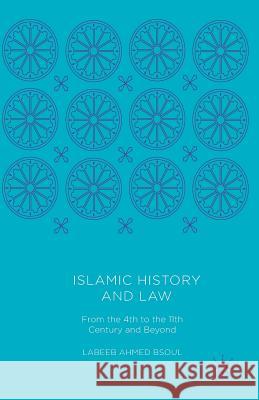Islamic History and Law: From the 4th to the 11th Century and Beyond » książka
topmenu
Islamic History and Law: From the 4th to the 11th Century and Beyond
ISBN-13: 9781349954308 / Angielski / Miękka / 2018 / 214 str.
Kategorie BISAC:
Wydawca:
Palgrave MacMillan
Język:
Angielski
ISBN-13:
9781349954308
Rok wydania:
2018
Wydanie:
Softcover Repri
Ilość stron:
214
Waga:
0.27 kg
Wymiary:
21.59 x 13.97 x 1.22
Oprawa:
Miękka
Wolumenów:
01
Dodatkowe informacje:
Wydanie ilustrowane











